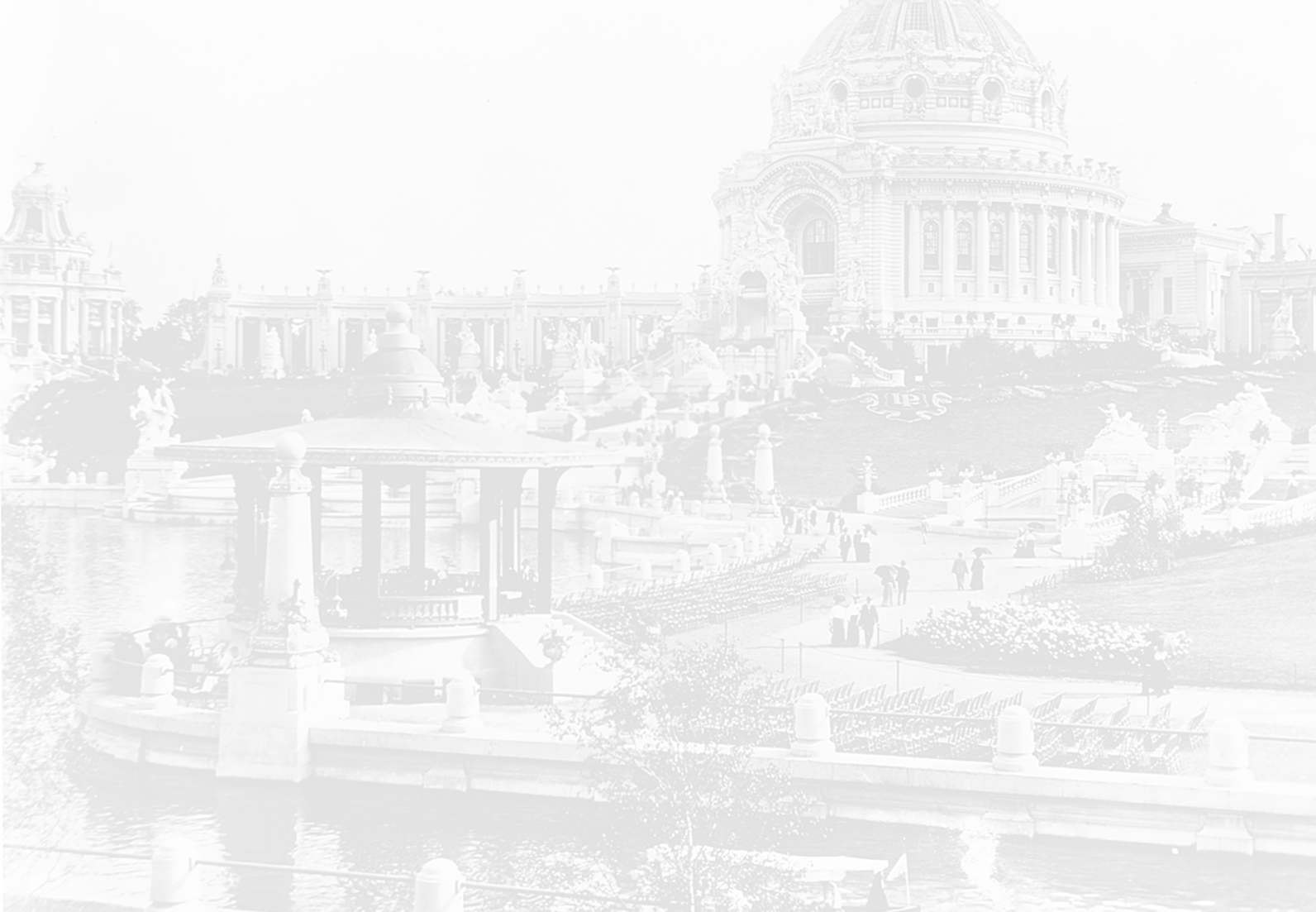Austria's pavilion was stylistically Viennese, and the only sample of the art nouveau among the foreign nations. It was first built in Austria, taken to pieces and reconstructed after its arrival at the World's Fair.
The ground plan of the building was shaped like a capital T; the wing pointing toward the front. On either side of this front wing were gardens and fountains, embellished with sculpture. The front of the building was flanked by square towers, 47 feet high, of peculiar design in the style of the art nouveau and again, enriched with sculpture.
The exterior walls were adorned with paintings of pastoral scenes executed by Austrian artists, and the corner pillars of the wall which enclosed the gardens were capped with sculptural figures.
Inside the building were 13 salons- decorated in dark green and burlap, one for each of the governmental departments, in which special exhibits were kept. There were relief models of the Government mountain railroads, showing bits of fine scenery along the routes; also a model of the greatest railway bridge in the world over the Isanzo river.
A large portion of the Austrian art display was housed here, rather than in the Palace of Fine Arts.
The noted art exhibit showed samples of "new art, " as well as distinctive paintings of the Polish, Bohemian and Vienna artists' associations. The work of 46 art and crafts schools (including the imperial Royal School of Arts and Crafts), was also on display including a fine array of artistic wood carving.
Fine lace handkerchiefs sold at the state building for 150 to 175 dollars (quite expensive for the day). Vases, glassware and other items could be purchased as well.
Lee Gaskins' AT THE FAIR The 1904 St. Louis World's Fair
Web Design and Art/Illustration copyrighted 2008


